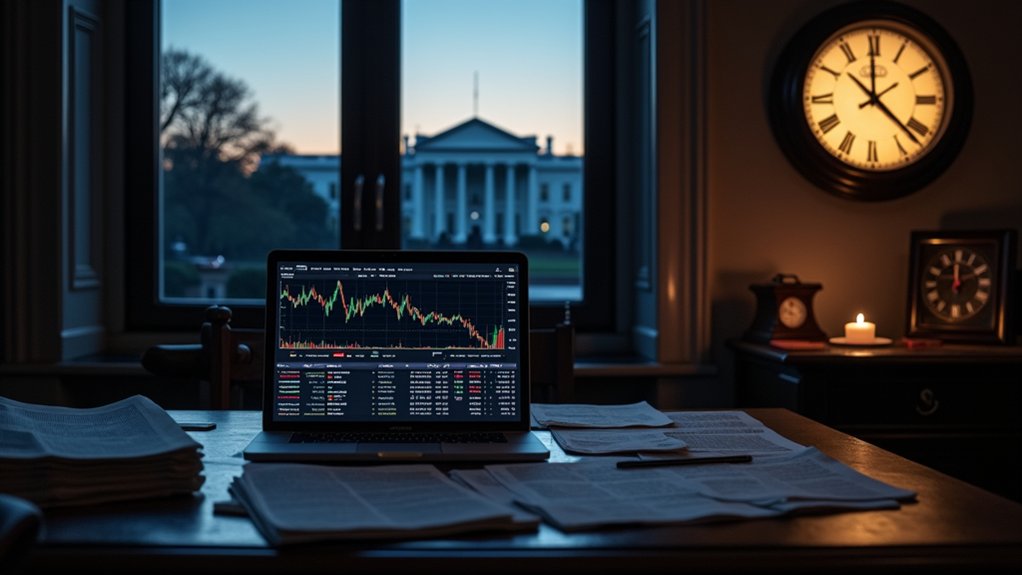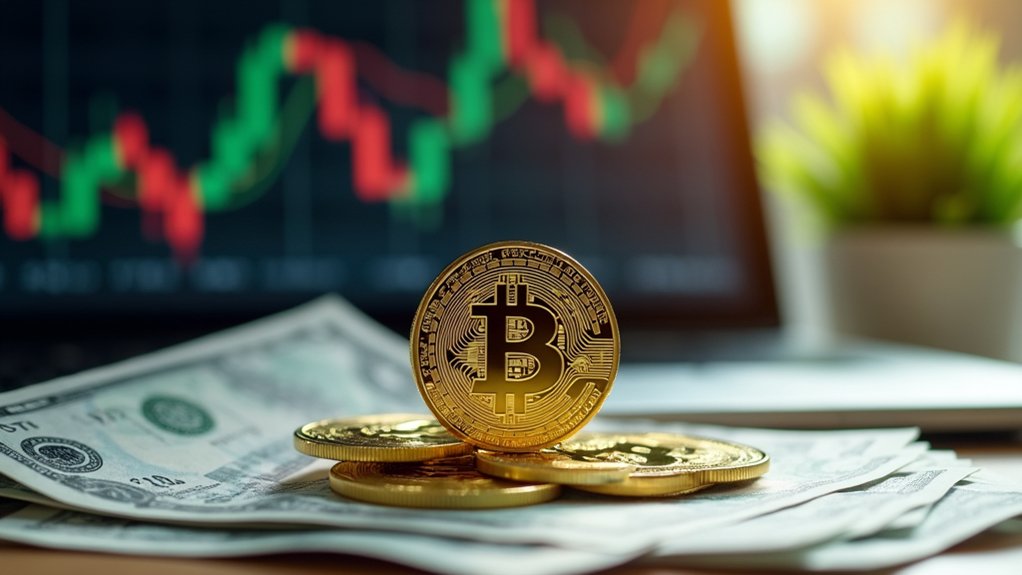What happens when a former president shares stock tips on social media? Well, it raises eyebrows, for starters. Donald Trump took to Truth Social on April 10, declaring it a “great time to buy” stocks. Really? What’s the catch? Hours later, he announced a 90-day tariff pause. Coincidence? Not everyone thinks so. Stocks shot up, with the S&P 500 climbing nearly 9.5%. Trump Media stock surged over 22%. Just saying, it’s hard to ignore the timing.
Now, let’s talk accusations. Critics are quick to shout “insider trading!” But hold your horses. Legal experts stress that insider trading requires juicy, non-public information. Trump’s posts? They’re public. So, while some Democrats are demanding investigations, the legal framework makes it tricky. Proving intent? Good luck with that. Furthermore, the surge in stock purchases following Trump’s post indicates a significant market reaction. Interestingly, this surge occurred alongside the 7% increase in the Dow Jones, showcasing the market’s volatility.
Critics cry “insider trading,” but legal experts say Trump’s public posts complicate the case. Proving intent? A tall order.
The market’s reaction was wild. Major indexes danced upward, and even Tesla shares jumped. Talk about volatility. Experts like Richard Painter are raising ethical flags. Should a former president’s words carry this much weight in the stock market?
Kathleen Clark points out that past administrations would have faced scrutiny for similar actions. But here we are, staring at a legal gray area.
Political reactions are flowing like a river. Senators are concerned, and some Republicans were blindsided by Trump’s tariff announcement. The Democrats are pushing for more transparency, claiming such inconsistent policies create ripe opportunities for insider trading.





